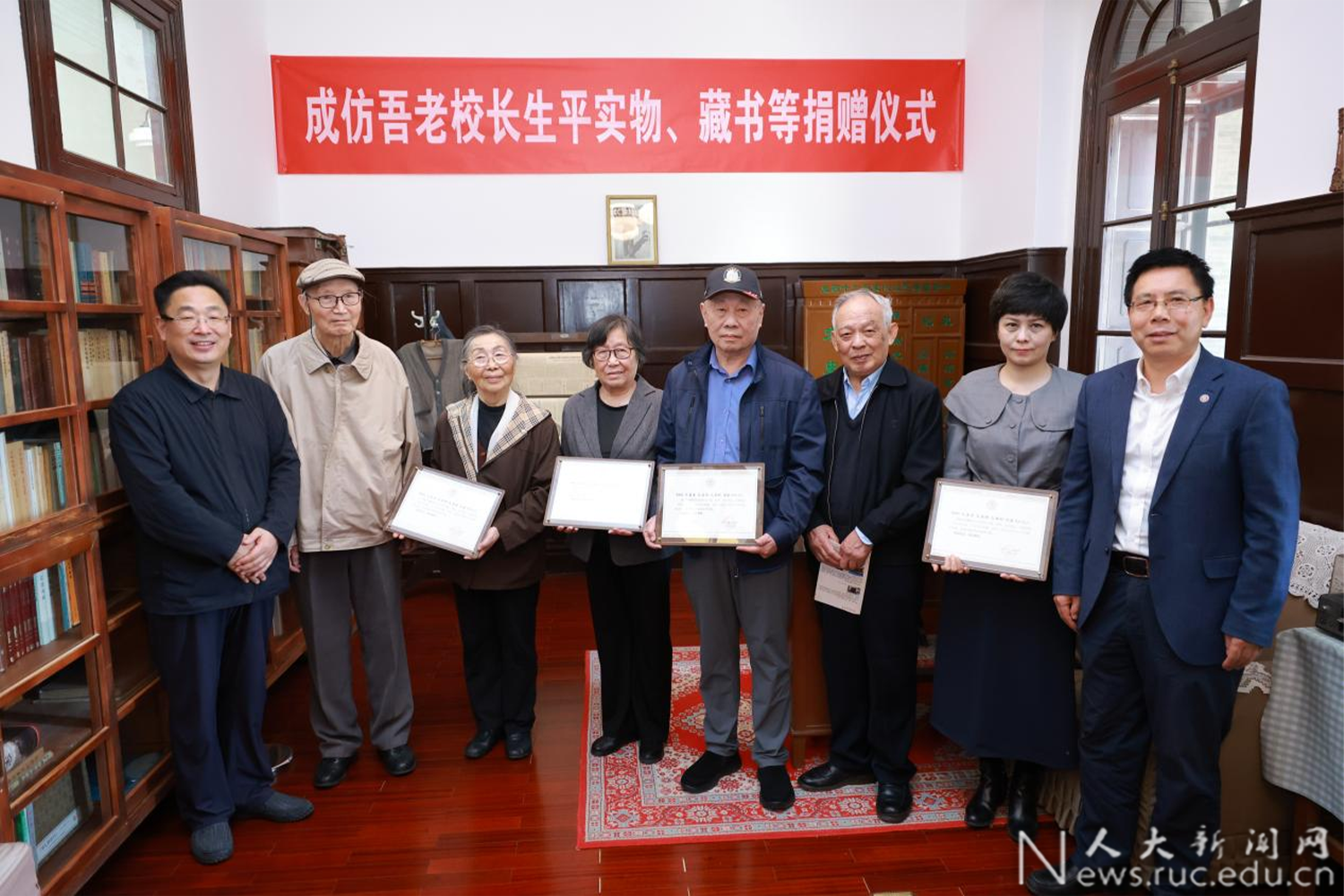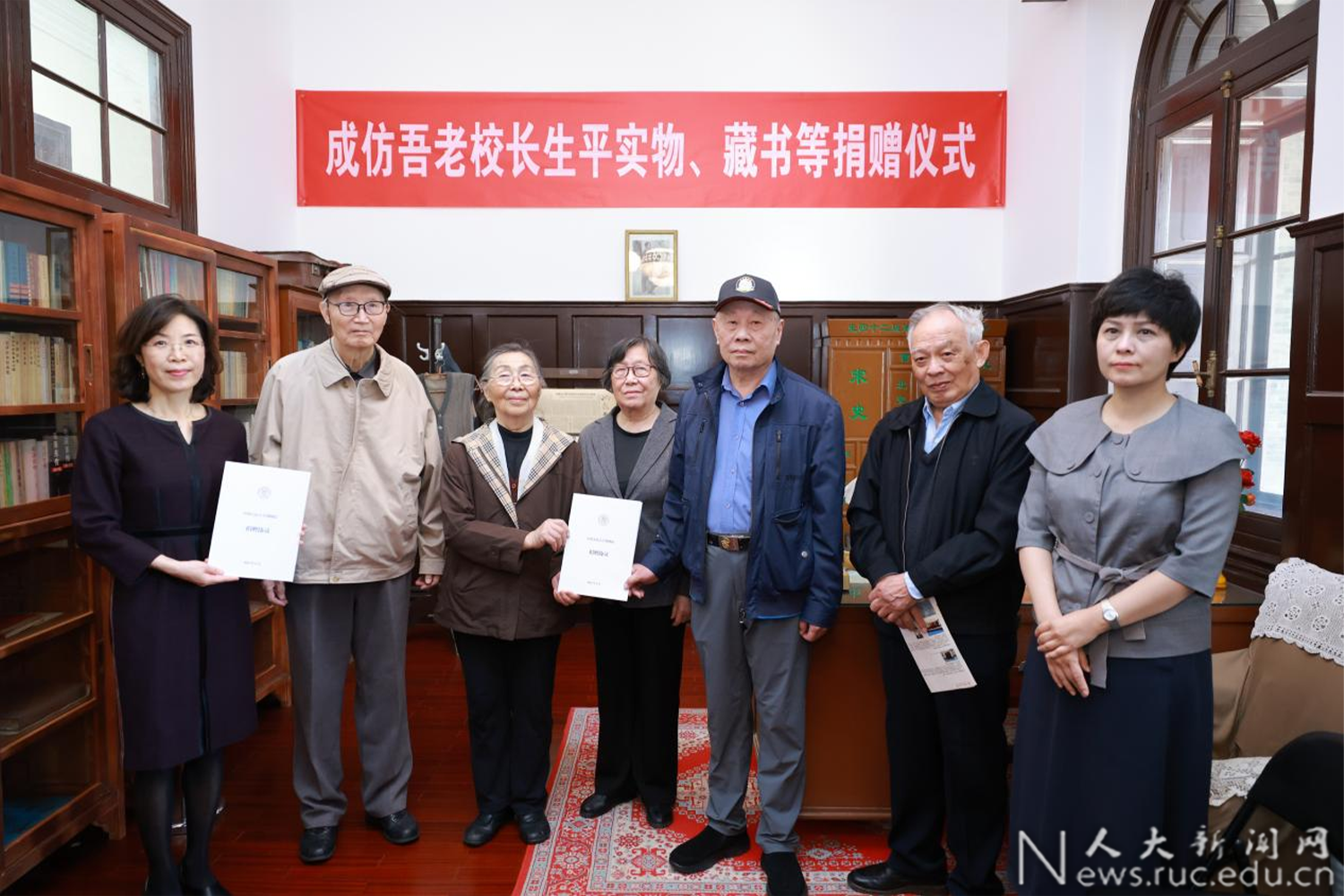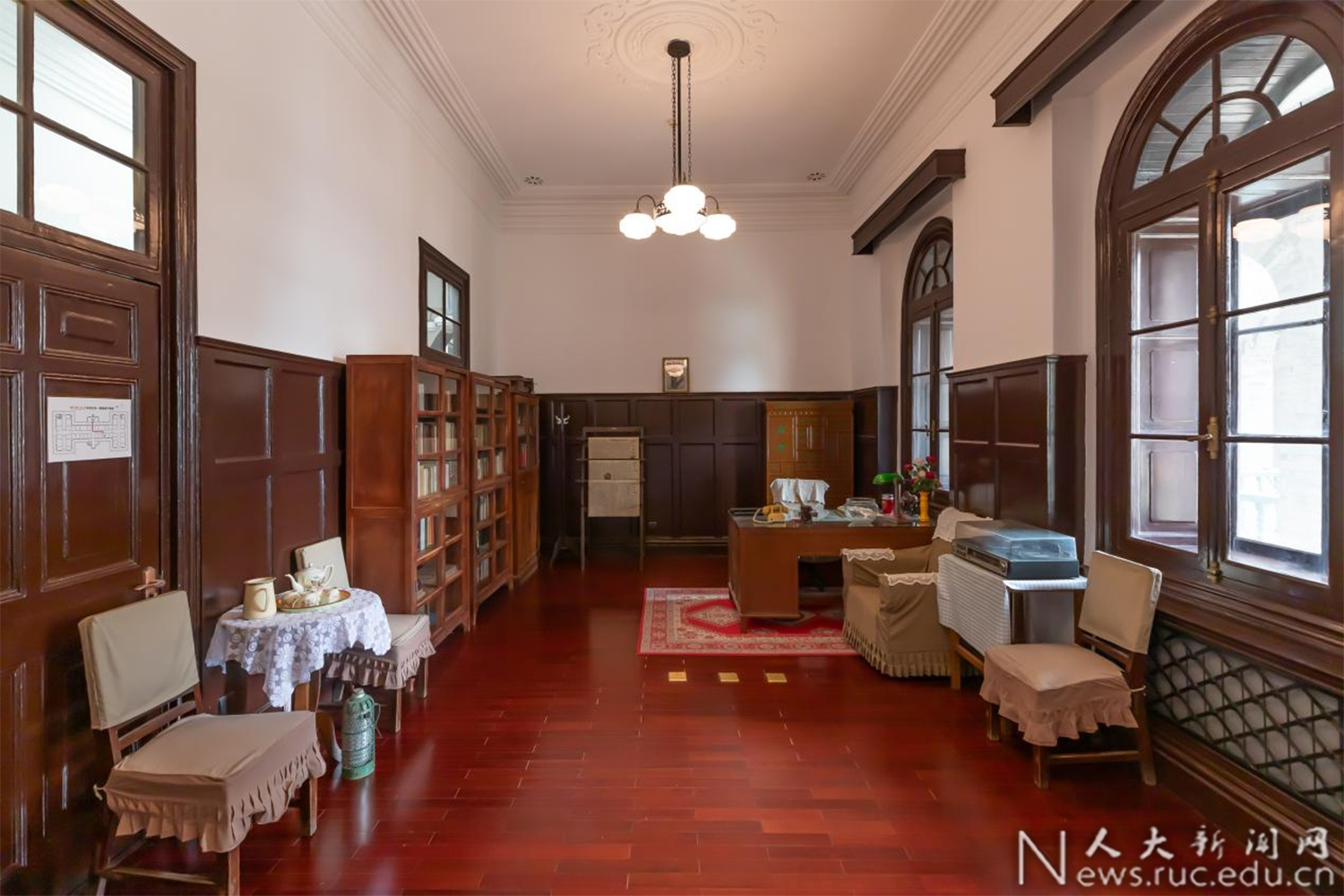A donation ceremony for personal artifacts, books,
and other items belonging to Cheng Fangwu, the esteemed former president of
Renmin University of China (RUC), and an exhibition restoring his original
office scene were held at the university’s historic campus in Beijing.
Attendees included Executive Vice President of RUC Zhu Xinkai, family
representatives of Cheng Fangwu, and Vice Council Chair Zheng Shuiquan, who
presided over the event.

In his remarks, Zhu Xinkai highlighted that Cheng
Fangwu’s donated items reflect the revolutionary spirit, moral integrity, and
lifelong dedication to education and public service of a true Communist Party
member. He noted that restoring Cheng’s office offers a meaningful way to celebrate
teaching ideals, honor scholarly excellence, and reinforce RUC’s institutional
spirit.
Zhu emphasized that the exhibit serves as a vivid “classroom”
to inspire patriotism, support talent cultivation, and advance the university’s
role in Chinese modernization. He called on the RUC community to learn from
Cheng’s public service commitment, educational devotion, and pioneering legacy.
Cheng Fangwu’s granddaughter, Cheng Mi, stated that
her grandfather’s office artifacts and books are vivid testaments to his
revolutionary ideals and educational philosophy. “If these treasures remained
within our family, they would represent personal legacy. By donating them to RUC,
they become a shared legacy—living textbooks that sustain the university’s
mission of moral education and talent cultivation,” she said.
Zheng Shuiquan highlighted Cheng Fangwu’s steadfast
loyalty, dedication to education, and humility, urging the university to uphold
his legacy by forging a distinct path for building a world-class institution
with Chinese characteristics.

The donation was formally presented by Cheng
Fangwu’s children—Cheng Qijing, Cheng Qiqian, Cheng Qipo—and granddaughter
Cheng Mi to Li Zhenshi, Director of the University Museum and Archives.

Cheng Fangwu, a pioneering Marxist educator, a founder
of RUC, and a key figure in China’s New Culture Movement, dedicated his life to
advancing education and social reforms. His extensive collection of artifacts
and books underscore his lifelong commitment to beliefs that continue to
inspire generations to integrate personal aspirations with national
rejuvenation.


